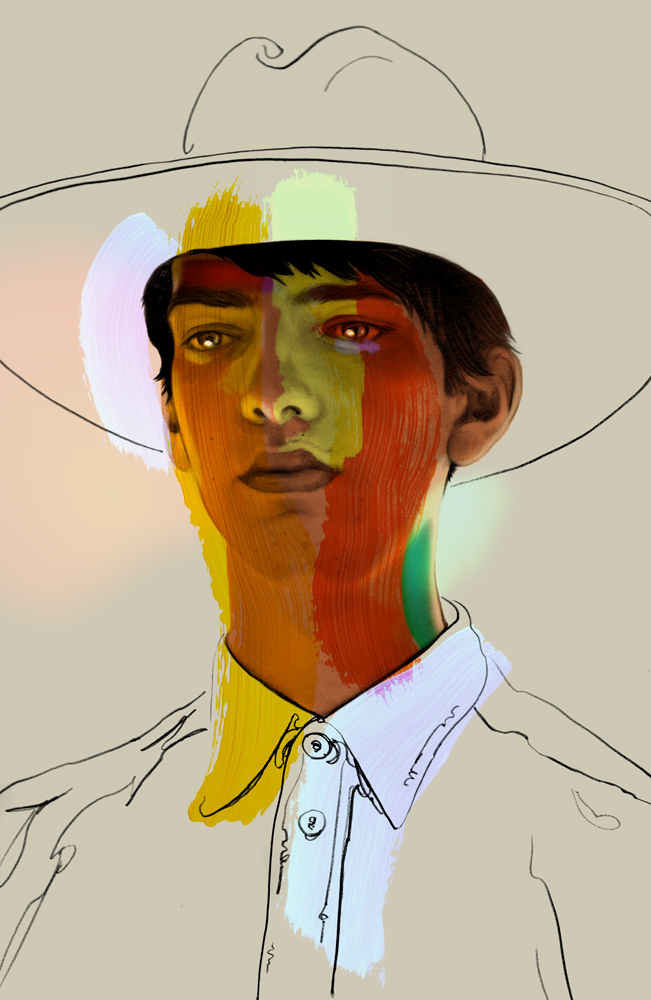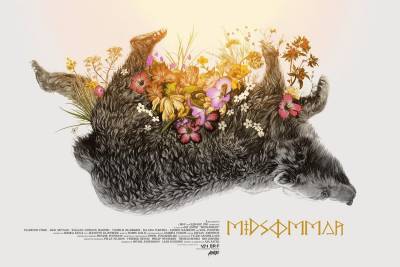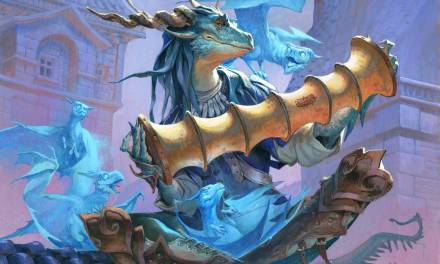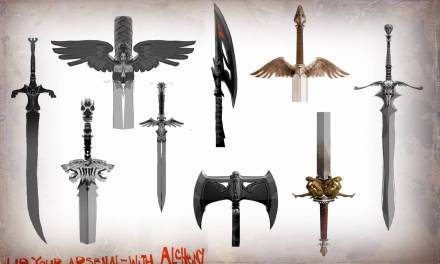In the thirty years I knew and worked with Allen Spiegel, there were frankly all manner of tidbits and career advice learned. He gave that advice freely and generously to anyone that asked him and applied it in practice before the rest of us as proof of principle. I still employ them to this day, and while some may be obvious on reading, it’s important to read them again and push these principles into your psyche. They have never led me astray and the benefits of them, even from seeds planted a decade ago, are present even at this very moment. Spiegel had points of advice that were as long as six of my arms strung together, but these are the five key ones I think are most regularly relevant.
CHASE THE LONG ROAD NOT THE SHORT TRACK
this is fairly common and obvious I know, but the way it manifests in our thing is important. It means sometimes taking it slow and being patient with contacts, or projects, fostering those important relationships, planning on your CAREER and not just your JOB can make the difference in how long your career lasts. This is the umbrella point of advice that all the others below really sit safely under int he rainstorm. But as a core principle, even a really fantastic sexy or dream gig that comes with short term thrills can leave you in a short amount of time, over and out of whatever that thing was giving you as it moves on and doesn’t take you with it. Be smart about the choices you make, be flexible about why you make them. Sometimes you are best served getting that book you want to make at the place by taking on a job with them on something else, and killing it as best as you can. Sometimes that means taking on a job you don’t love so you can pay your bills for now to avoid having to surrender to full time work which will gobble up toime spent on launching your career. Enter a project with earnest intent. be present and engaged with it and NEVER EVER PHONE IT IN. Everyone can smell a hack job an all side sof the kiosk, so don’t do it. If you agree to to a job, make that job your baby all the way until the end as if it were your favorite thing ever in this world. The work you make will reflect that. I’m not proud of a LOT of covers I’ve done that were for whatever reason, just awful experiences. I can see how it degraded the work and showed up int he final result. When I was coming up and was offered to take on Conan for Dark Horse, I refused it at least twice- I’m not a Conan guy, this isn’t my thing, etc… but it turned out to be something sort of wonderful. Kurt Busiek was a gift and a great teacher, the pay rate was bonkers and if I had indeed refused it, Ethan Hawke wouldnlt have found it on a shelf in an NYC Forbidden Planet hunt for artists that might help him see his story INDEH find a partner to bring to life, and all that has followed after that. You just never know. So knowing that, build forward like you are building Antonio Gaudi’s SAGRADA FAMILIA: you want something that blossoms long after your part in it has vanished.
FOLLOW PEOPLE NOT COMPANIES
This one’s pretty well known as a basic. I think it applies to us all more now than ever before. Basically this is about relationships- keeping them, growing them and maintaining them. Not just as pals or career comrades, but professionally as well. This means like the principle of the long game above, treat with folks the way you would want to be treated. Golden Rule for a reason. Even when you disagree with a note or an author’s feedback, even when things are so sideways and pear shaped on a project- or even completely collapsing- even the, be an ally, not part of the problem. ESPECIALLY when things are falling apart. Bad times don’t ruin future relationships, but how you act in those times can. Your partners will remember how you handled yourself when things went bananas and you keeping to a calm professional and a generous party of that struggle will endure long after the melodrama is past. If you are part of the negativity or even a source of the drama, you can bet they’ll remember that to. (More on that in section below).
But even back when art directors, editors and publishers stayed put at solid never changing companies, people leave, graduate out of and change positions. These days it can be a regular turnover in a matter of a few short years. some assistant you met in the lobby before a pitch meeting may well take over that editor’s office a few years later and you will find yourself pitching to them. Or as is more often the case the junior AD at publisher A might pop up a few years down the line at Publisher B as head of the department and they have a job for you. I expected, going into the Covid pandemic, a total shutdown and could not reliably assume anything that wasn’t contracted already or in motion could very well not materialize. As a career freelancer this sort of global event is white hot terrifying as many of you know. I pre-booked a massive list of private commissions in anticipation of this, and as it turns out my prediction was completely and hilariously wrong. Covid for me was an even busier time work-wise than any two year period before it. It was literally the opposite of my expectations. Later when this was settling back in and we were coming out of it I reached to see if I could be made to understand what happened. When so many people were suddenly seeing their projects cancelled, delayed or new work dry up, when so many friends and colleagues weren’t sure where the next paycheck was coming from why were some of us drowning in work? It turns out that in this particular crisis, when people had to remote in from home and the presses were seizing up from staff shortages and supply chain issues, publishers simply leaned hard on reliable professionals and experience as a way to simplify and reduce the amount of mystery on a project in a time when even whether we’d survive it was itself a mystery. People also, stuck at home read a LOT of books, and etc… so if you were working in those fields, your audience essentially exploded from the isolation times. But the key point I took away from it was that while many were out of luck, and a great many new up and comers found themselves sideline, it was creatives who hit their deadlines, delivered good work, and were easy to work with… well they won the day and became the light posts these editors and art directors clung to during the gale force winds of a global pandemic. The relationships made the difference.
Be keen on picking and sticking with good people you had a good relationship with. you don’t necessarily needs to be besties off work or anything of course, but it helps to be able to have a nice chat or a lunch with, anything that foster’s and supports an ongoing relationship. Learn about each other, share stories, and so when things get squeaky as they always do, you know each other enough to be able to work as a team to solve a common issue. You’ll get more insider info that way, sometimes a back door to solving an issue with an author or a licensing agent, and frankly it makes the work more fun and fulfilling when you work with fun and fulfilling professionals. Many of my adult relationships are now decades long friendships born from projects from the past. Even if we haven’t worked professionally on something together in years, it’s nice to have pals who get you and what you do and tactically, they can be secret affirmative resources to their colleagues inquiring after you working for them.
Your people are going to move around. Office purges of older career staff to spend less money and hire new cheap labor is a thing that does cycle through semi regularly, however cheap and short sighted as that ethic always turns out to be. People get fires, move to new companies, have babies, graduate to executive levels… like everyone there’s a million reasons to find them on a different plane when you want to approach them about something. Think of it like this- Companies are houses and relationships are the people who reside in them. However awesome a house it may be, it’s an empty place without your people in it. Your joy in your career comes from working with the residents not the house- it’s the people that make the house a grand place to be. So follow them when they leave it. It sometimes is indeed a loss, or as in the case with the Lost Boy where I went through I think 3 or 4 different editors at the same publisher, the peopel that come and go, go elsewhere and you may find your pool of contacts and possibles grows exponentially because of that. Sometimes they end up running something even more terrific elsewhere and invite you to come join. Simply put I have never ever been more rewarded by sticking to the good people I get to work with even if it means leaving the place I enjoyed to follow them. It’s THEM you’re going to be on the phone with or exchanging emails when there’s some weird actor issue with a likeness, or some grand success you get to share with a friend. Places are nice, but they’re empty places without the people you care about. It’s them who make the place work, not the other way around.
CHOSE YOUR BATTLES & BE SMART ABOUT IT
For god’s SAKE please listen to this. No matter how crazy unfair or even illegal something is, don;t let your immediate emotional state limit options or set courses a little patience and a deep breath might avoid. I know SO many artists who either became part of the melodrama or caused it, were unreliable and nasty on social media to others, who barfed out private situations to the world on Facebook, who are no one’s even fourth choice for a project no matter how insanely good they are. People want someone they can work WITH not someone who could snakebite them and be an embarrassment FOR them. I’ve definitely had too many time where something went sideways and imploded for reasons utterly not my own and about two other parties’ battle for primacy. Being collateral damage sucks and is not fair. Save it for the barstool next to your friend’s and rant away. Allen fielded more calls of me screaming my face off than I feel comfortable counting. He listened and became the rock that let me lash my violent waves against, and then advised me on how to deal with it and assuring me he had my back. He wasn’t a pushover at all and could be turtle shell hard and sometimes even impossible, but he was always friendly and supportive and did his best to make sure he advocated for the right person int he struggle. He showed me that being calm and taking a day or two to catch a breath can reveal solutions the angry passion of the moment misses.
And for all those battles we fought together he taught me to keep family business to the family. I see so many artists and creatives going on line and torching fellow artists they don’t like, or companies that even might deserve the fire they have incoming, and all I think when I see those is “I wonder oif they realize people they want to work for someday might be also seeing this?” Barfing out injustice on social media isn;t always the best way to aid the cause your after. Be mindful of being heard. Say “fuck” enough around your kid’s bedroom, you’re gonna hear it shot back at you later. But also and more importantly, HOW you behave is going to teach others how you MIGHT behave with them. Maybe it’s them who will be the target of your future Twitter rant. Maybe it’s the project you’re going to harm as it rolls out, or the company you work for getting piece tossed in its face. Maybe hiring you is dangerous and maybe hiring someone else, even if they’re not as talented as you might be, is a better idea.The internet is forever and we’re all part of it now. A lot of big companies do searches of you before engaging with you on a job and think ahead about what they might find. try not to be a dick, and you waon;t have to carry the dick’s luggage: It’s heavy, it slows you down, and it drags you back while others race ahead of you. and also all that spew really might feel awesome in the moment, but it does not feel awesome once the adrenaline’s past. If you’re not in a place to say something nice yet, then hang back and wait until you are. I promise you being clear headed is a better place to make potential career changing moves than coming from a wounded emotional maniac. Always.
Being a grabby creep at a convention, a social media flamethrower or suing some stupid movie that stole your illustration to use for their bad movie is not going to serve your long term goals- or even be a fight worth fighting. If you find yourself in any kind of conflict, make sure you think about what moves serve your long term interests better. You might win the money from a lawsuit at the cost of your career… was that money well earned? Does making that dumb executive in that pitch meeting feel stupid, even when they were being terrible and stupid, help you with your pitch? Is spurning your marketing department, no matter how much they’re getting it wrong, help you have people who can push your project out and get it seen? Think about what then, not just right now. Try and play chess to their checkers and make plans and what ifs three or four moves ahead if you can. Be strategic and THINK. Feeling is great- I love feelings, but they don’t always take you to the smart tactical place you want to be. Allen for me was a gift in being a sounding board and we played good cop/bad crazy ass cop in reversed roles too many times to count to make sure we handled things with tact, not just gusto. I hear him in my head asking “what then?” when I want to go scorched earth on someone, and it saves me each and every time. Let it save you to.
BE YOUR OWN FIRST AND BEST ADVOCATE
Artists are weird when it comes to defending, advocating or even celebrating themselves. We’re not great at moderating this key factor. We tend to be overwhelming quiet and self effacing for the most part, and when we do take the reins of advocacy we then tend to overcompensate for our weirdness with ego, and volcanic levels of narcissism. The middle ground is our least trod path, but it’s where we’re best served. I’ve spoken about this before in several articles, but I’ve found the best method for navigating this stuff is to always whenever possible, KEEP IT ABOUT THE WORK. We often make the mistake of glamming in front of our work, taking too seriously the trophies we might earn or the press that seems way too interested in talking about us as creative forces rather than the work we make. It’s hard to blame the dog for going to town on the dog food when you leave the lid off. But giant egos tend to come later when they’re being fed by over-success- or rather, taking the wrong lessons from success. For the most part our sins tends to be self immolation, lack of confidence and quietly letting people take advantage because we’re just thrilled to be there at all. A lot of bad and terrible contracts are signed this way. A lot of bad agent/manager relationships can get exploitative that way. It’s sort of not our fault as we tend to come from humble oddball experiences growing up being different as we are, and being too keenly thrilled by the game we play in that we forget to keep an eye on who has the ball. Worse yet when we see we’re being exploited or taken advantage of, we let it happen because… well, who are we to bitch about it? Our lack of self regard as people needs to at least meet and hold ground with our self regard for our work. Making it about the work and not us, tempers the mistake of seeing an art trophy as some kind of major milestone achievement that will sky rocket our career. It helps us be more mindful about our negotiations in a contract, pitch meeting or interview. But most profoundly, it helps us advocate for ourselves though the work we make because let’s face it, it’s easier to stand proudly by and defend your children than it is to defend or celebrate yourself. It’s a little but adorable that we’re bad at this, I grant you, and there’s even a strange dynamic in our thing to be dismissive of the professional work and contractual business side of things because of the silly “sell-out” garbage we’re forced to digest, or that it’s just beneath us to be anything but idiot geniuses that need a dutiful parent to understand our fashionably clunky quirks and social foibles.
There’s no shame in being smart about your business choices, and the sooner you dispense with the notion the better off you’ll be and the stronger your career will be too. It’s easy to mistake a friendly relationship with a publisher or your editor and import that into negotiating for your pay or your rights int he contract sphere. Or even being able to say no to certain things you’re going to be asked to do in the marketing phase of your rollout. Like it or not, most of us don’t live in the hippies rainbow world where all our needs are covered in celebration of our artistic shamanism. We have to fight for our place, argue for our value and stand up when those are being threatened by either dismissive and venal lawyers, or penny pinching company folk who can’t see the forest they’re clear cutting for the trees they’re stuck sitting in front of. If you don’t advocate for yourself, why should anyone else? The internal chaos of self checking your ego can be easily tampered by keeping it about the work. Think of the work as your children, and protect them, find the best place them to grow, an let them play in a safe playground that you have created and defended. When a company tells you this is all they can afford, be ready to walk away if you can if it’s offensively low, and don’t that the first offering is not intended to be the last. Take every advantage you can of a situation and spot the the tools that can aid your cause. You’re not there to serve their interests, you’re there to preserve and whenever able, elevate your own. A short deadline that has them over a barrel is not a problem you have to inherit without some compensation- use it to gain more control over the process, and get more for your work. know when to say no more to calls for endless never ending edits by people who honestly just have no idea what they actually want in the first place. Learn to spot ding dong comments from marketing teams like “Pink is really in this year- can you make your cover use more pink?” or “Can you make the rope less… ropey?” or, “I see a lot of outward strength but want to see more inward strength”, or “I don’t like freckles and you character has freckles and they need to go because freckles are gross”. (These are all literal things I’ve hear said in all seriousness by apparently professional adult people, without a drop of irony). Making it about the work and not about yourself provides some healthy distance so you aren’t instantly offended by this stuff, can see it and laugh a little at it, but most importantly craft a response that is smarter tactically looking our for your interests and avoid entrenching them into defending their ridiculous position because you made them feel pesronally stupid for saying it aloud. Part of self advocating is also recognizing what you are and are not good at. Bad at reading contracts- spend the money to hire a lawyer- it’s like paying a tax preparer to do your taxes: you’ll make far more than you’ll spend on them to save you than you’d be saving by doing it yourself, and poorly. Self advocacy helps you to be happier with your results, less resentful of your situation and can leave you in a place of inordinate power and leverage later in ways that will surprise you.
FOLLOW YOUR HEART
One of the first things Allen taught me was to value my goals, my desires and where my heart lay. It didn’t always mean I did projects that were my heart’s desire- in fact most of my early ones were not that at all. I got lucky sometimes and also got a gig that was a joy and I let that temper the more sour flavors of the magazine gig or book cover I had no real feeling about except for its paycheck. Even when being tactical about these choices, those non-heart jobs always and only happened if they served the heart ones. This is why I sort of loathe outsiders casting judgements over artists they deem as “sell-outs’ for say, taking a job at Disney, or that time I had a colleague pal declare he hoped to do a book with Vertigo one day to a room of boos from indie comics people at SPX. Working as a sheet-rocker or a barista at Starbucks, or whatever is not necessarily a better thing to live through to keep your art “pure”. Most time that book cover job you get scorned for buys you the four or five weeks to make your comic or write your novel than a mont of Starbucks shifts can buy. SO when someone hurls that silly dismissive garbage at you, think about what they are actually saying, and wave it off. Only YOU know what your heart desires, and that’s what matters most. You always dreamed of making art for Lego… and you get that gig one day, man that is GOLD. Don’t let anyone tell you otherwise. Allen always was most engaged when he was tasked with helping any of us fulfill a dream we wanted to take on. He taught us through action how important it was to love what we were doing and chase or further passions. It’s this stuff that makes the hard times easier, and it makes the victories born of this goal so delicious.
We all come to this as primary obsessives before we’re told otherwise. Kids make art and it’s precious and sweet when we’re kids- it’s only later when we’re supposed to be filling some other cultural expectation, role or career planning that we start hearing what we love to do when no one’s looking is adorable, but you need to take your life seriously and get a real job. Try and make sure you stay in touch with that love, protect it, carry it like a baby through a sea of swing swords and brambles and whenever you can let out to run around in the cool grass, do so. Working professionally with your art is not for the faint of heart- it’s ciorrupting and challenging and frightening most of the time and even if you’re lucky enough to find yourself in a self sustaining art career that doesn’t require shifts at Starbucks, it’s easy for your play and joy to become just plain old WORK. This is literally what my 52 Weeks Project series aims to combat. You can find your own coping tools, but all the commercial concerns aside, if you’re not in love with what you’re doing, then the rest will become hollow and the empty resentful space in your heart raisin will grow. I don’t love doing press or interview and loathe sharing process videos and I know intellectually these are not things to be proud of and they come at a cost to my success. If I didn’t in my core hold fast to a love of the work itself, of making the thing and having the thing sing its best song, the rest of the headaches would feel like world eating migraines. The love is what takes you through the brambles. it’s the love that makes the reward worthwhile and fills the empty space an award gives you all too soon after the ceremony is passed. It’s the love that drives you to think bigger, explore new ideas, learn how to wrestle with your terror and find unexpected paths through harrowing times. And it’s the love that breeds more love in others because that stuff comes through in the work. There’s simpler and much easier ways to make a dollar than art making, and if you’re in this for any other primary reason than love for the work or the medium, then you won’t last long in it without becoming something you will truly loathe. A lot of bad ideas or suggestions from your editors or ADs can be dispelled by an articulate passion for your side of the till, and love is that defenders bread and butter. Whether you love dragons and dwarves, or spaceships or true crime or romances, while it’s tactically important to diversify your love as much as you can, hug what you love to do because it will probably be the best work you make. Don’t fill a portfolio with stuff you think they want to see, but what you want to say. The editors and ADs looking at it can extrapolate where to put it in interesting ways. Again I refer you to me doing Conan. That still barely computes but someone thought it would work and somehow it ended up being true. It reminds of that line at the end of Allan Moore’s FROM HELL, where the fake spiritualist in the Jack the Ripper murders confess at the shore… “I made it all up and it came true anyway”. In art, that is literally your goal.
I’m lucky now being where I am where I am largely able to just work on projects I either generate, inquire after or are gifted with that make me happy and fulfilled,. It’s the dream tier I cannot lie. How long it will last I also can’t say but I credit this time as a result of the decades of following Allen’s wisdom, of witnessing that same wisdom in the art heroes that became colleagues, and in the friends I’ve met and made along the way who also follow these three basic rules. It makes better work and it makes better working experiences, and if you’re not careful it can make families come to be too.













I loved reading all of this. They are all ‘obvious/common-sense’ rules that we can often forget about along the way if we get too caught up in the noise out there. This is a refreshing reminder of what to focus on and how to move through the world of being an illustrator. Thanks for sharing the wisdom that you’ve learned and was shared with you!